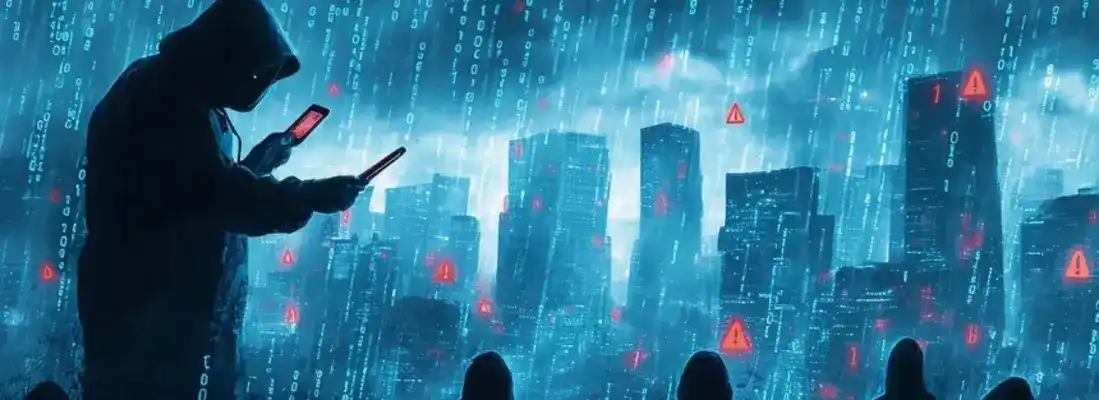Nation-State Hackers Eye Blockchain: 5 Critical Infrastructure Defense Strategies You Can't Ignore
In recent years, the convergence of blockchain technology and critical infrastructure has created new opportunities—and new vulnerabilities. Nation-state hackers have increasingly turned their attention to blockchain systems that interface with essential services, making it imperative for organizations to strengthen their defense strategies. Let's explore five crucial approaches to protecting these vital systems from sophisticated state-sponsored threats.
1. Zero-Trust Architecture Implementation
The traditional security perimeter is no longer sufficient when dealing with nation-state actors. Organizations must adopt a zero-trust architecture that treats every access attempt as potentially hostile, regardless of its origin. This approach is particularly crucial for blockchain implementations in critical infrastructure, where a single compromise could have cascading effects.
Key implementation steps include:
- Continuous authentication and verification
- Micro-segmentation of network resources
- Real-time monitoring and logging of all access attempts
- Regular privilege reassessment
2. Advanced Threat Detection and Response

Modern threat detection systems must evolve to match the sophistication of nation-state actors. According to recent reports from the Canadian Centre for Cyber Security, state-sponsored actors are increasingly targeting critical infrastructure through complex, multi-stage attacks. Organizations should:
- Deploy AI-powered threat detection systems
- Implement behavioral analytics
- Establish 24/7 Security Operations Center (SOC)
- Develop comprehensive incident response plans
- Regularly update threat intelligence feeds
3. Blockchain-Specific Security Controls
When protecting blockchain implementations in critical infrastructure, traditional security measures must be augmented with blockchain-specific controls:
- Smart contract auditing and verification
- Consensus mechanism security assessment
- Private key management protocols
- Node security and monitoring
- Cross-chain bridge security measures
4. Supply Chain Risk Management

Nation-state actors often target supply chain vulnerabilities to compromise critical infrastructure. Recent attacks documented by the Cybersecurity and Infrastructure Security Agency (CISA) highlight the importance of:
- Thorough vendor security assessments
- Regular security audits of third-party code
- Secure software development lifecycle (SDLC) implementation
- Hardware security module (HSM) usage for critical operations
- Comprehensive supply chain documentation and monitoring
5. Resilience Through Redundancy
Critical infrastructure must maintain operations even under attack. Organizations should implement:
- Geographically distributed nodes
- Multiple consensus participants
- Backup validation mechanisms
- Emergency operation protocols
- Regular disaster recovery testing
Emerging Threats and Countermeasures
Recent intelligence reports indicate that nation-state actors are developing increasingly sophisticated attack vectors targeting blockchain infrastructure. The U.S. Department of Homeland Security's 2025 Threat Assessment highlights several concerning trends:
- Quantum computing threats to cryptographic systems
- AI-powered attack automation
- Social engineering campaigns targeting blockchain operators
- Zero-day exploit stockpiling
- Cross-chain attack vectors
Best Practices for Implementation
To effectively implement these defense strategies:
- Conduct regular security assessments
- Maintain updated incident response plans
- Invest in staff training and awareness
- Establish clear security governance structures
- Participate in information sharing networks
Regulatory Compliance and Standards
Organizations must also ensure compliance with evolving regulatory frameworks:
- NIST Cybersecurity Framework
- ISO/IEC 27001
- GDPR requirements
- Industry-specific regulations
- National critical infrastructure protection standards
The threat landscape continues to evolve, with nation-state actors developing more sophisticated attack methods. Organizations must remain vigilant and adaptive in their defense strategies. The investment in robust security measures today will help ensure the resilience of critical infrastructure tomorrow.
Ready to enhance your organization's cybersecurity posture? Explore comprehensive blockchain security courses and specialized training programs at 01TEK. Our expert-led courses provide practical knowledge and hands-on experience in implementing these critical defense strategies. Visit 01TEK's Training Portal to learn more about our certified security programs and take the first step toward securing your infrastructure against nation-state threats.
Sources: [1] DHS Homeland Threat Assessment 2025 [2] National Cyber Threat Assessment 2025-2026 [3] Recent Cyber Attacks Analysis 2025 [4] NCSC AI Impact Report [5] Cybercrime Cost Projections 2024
Every feature has some maintenance cost, and having fewer features lets us focus on the ones we care about and make sure they work very well.
David Karp, founder of Tumblr



